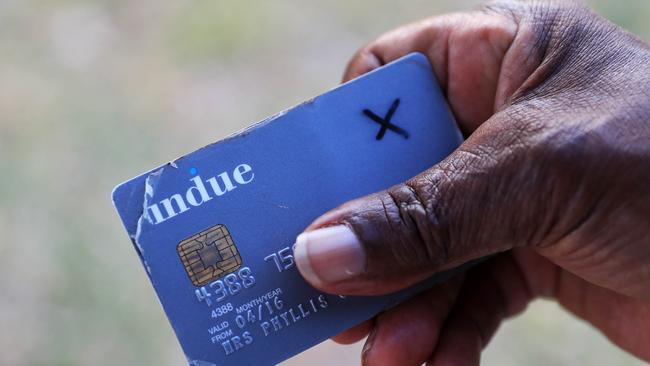Ceduna welfare card trial shows only minor drop in police reports, alcohol-related hospital visits
There are some encouraging results of Ceduna’s welfare card trial, says the Social Services Minister – but police data over its duration does not show a significant drop in crime or injury.
SA News
Don't miss out on the headlines from SA News. Followed categories will be added to My News.
Millions of dollars have been invested in Ceduna’s cashless welfare card program and support services but crime and hospital admissions have not drastically dropped, according to new figures.
The Advertiser has analysed SA Health and SA Police data since the card trial began on the West Coast in March 2016.
It comes as the Federal Government tries to win crossbench support to expand the trial to the Northern Territory and Cape York Peninsula.
More than $34 million has been spent on the trials in Ceduna, the East Kimberley and Goldfields in WA, and the Bundaberg and Hervey Bay regions in Queensland. But the number of people visiting the Ceduna Hospital’s emergency department with alcohol-related injury or illness reduced by 11 per cent to 192 presentations between 2015-2018, according to SA Health data.
Reports of serious assaults not causing injury were up from 66 in 2014-15 to 72 in 2017-18.
But property damage dropped 13 per cent from 96 to 83 reports in the Ceduna area during the same period, SA Police figures reveal.

Social Services Minister, Senator Anne Ruston said it was encouraging to see police reports down by one in five, and a reduction in alcohol-related ED presentations.
“Call-outs to the night patrol have also reduced from several call-outs a night to one or two call-outs a fortnight,” Senator Ruston said, adding the card was having a positive impact on the wider community.
Aboriginal Drug & Alcohol Council SA director Scott Wilson said the reduction in hospital admissions was because of community paramedics.
The Council received a $2.5 million grant last year, allowing it to establish an after-hours counselling service and to hire a youth counsellor.
However, Mr Wilson said a rise in client interactions from 13,000 to 17,000 between 2015-18 showed the card had not reduced alcohol abuse. “If it was having that much of an impact our clients would be less every year,” he said.
“The Federal Government pours a lot of money into these trial zones to give the appearance they’re working.”
An evaluation of the Ceduna trial will be conducted by the University of Adelaide. Its findings will be reported back to the Government later this year, and inform future decisions about cashless debit card.

